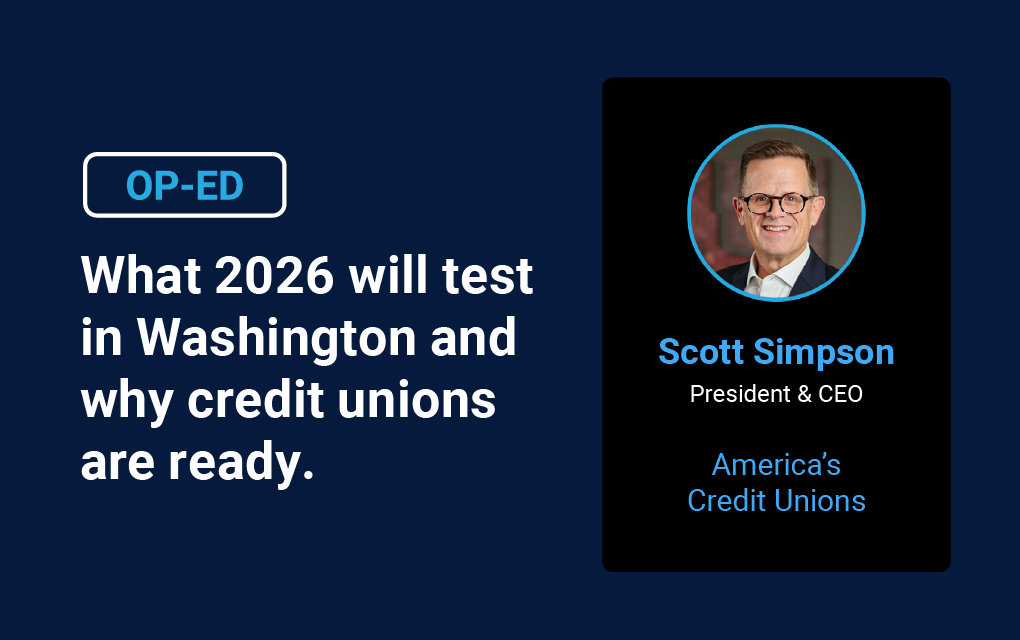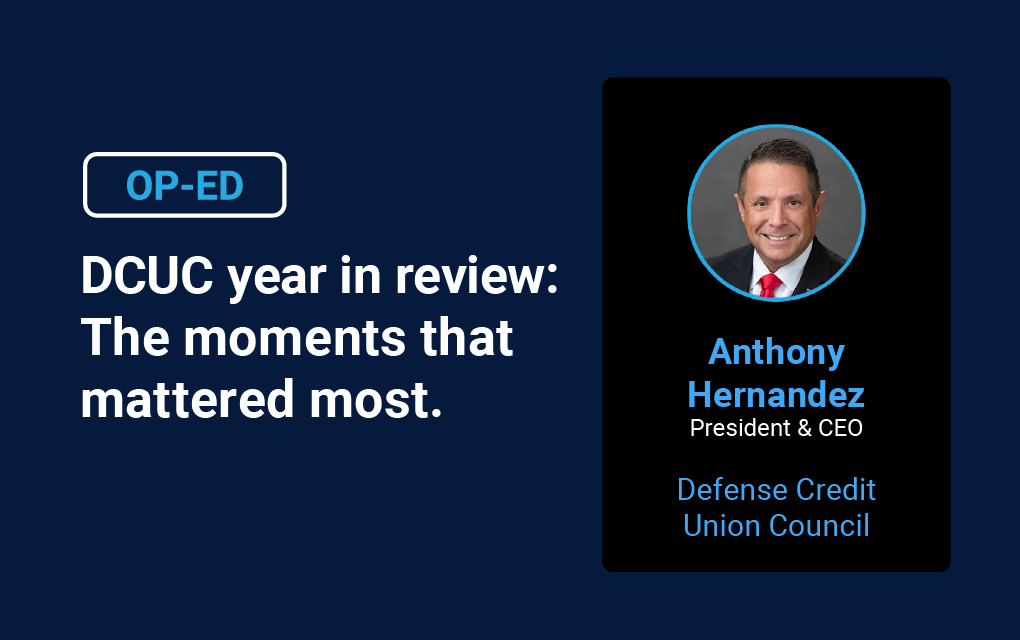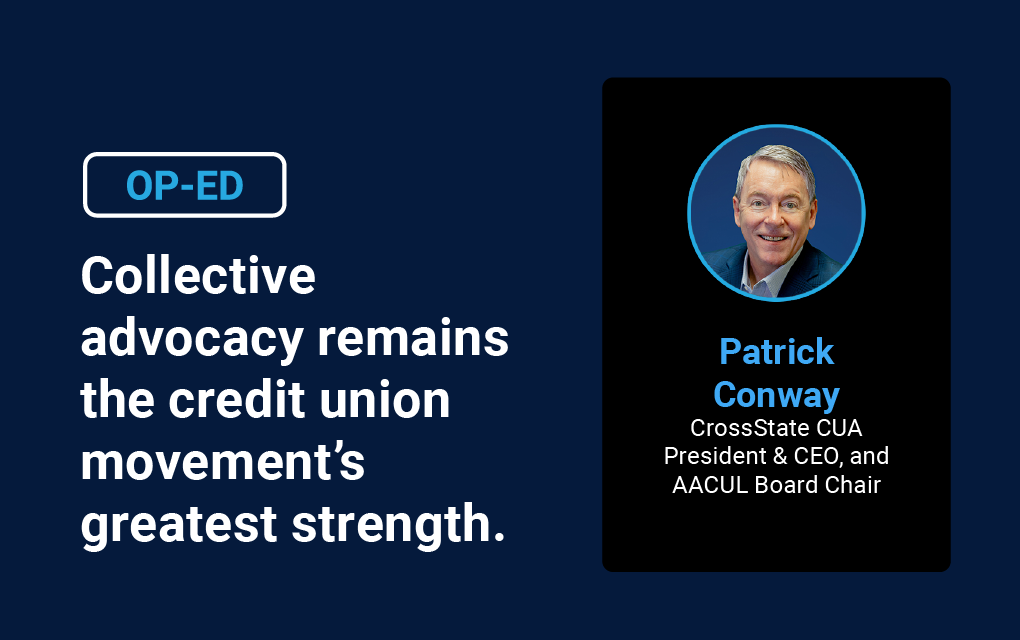New year, new administration, new(ish) NCUA regulatory agenda
The tea leaves have settled, and to the surprise of probably very few, the 2025 examination supervisory priorities recently released by the National Credit Union Administration drew heavily from that of the OCC’s Fiscal Year 2025 Bank Supervision Operating Plan.
Between that development, and what looks to be a potentially eventful few months to come in the wake of the administration turnover, 2025 is starting off with a bang. Let’s take a look at what we may have in store.
Key concerns in this year’s supervisory priorities remain credit risk, interest rate and liquidity risk, allowance for credit losses, and capital monitoring. The NCUA echoed its warnings from last year’s priorities by noting the continued trend of post-COVID downturn in loan performance, with overall delinquencies and charge-offs increasing in the calendar year.
Credit card performance in particular was highlighted as an area of risk, as compared to other products. Lending practices, standards, and risk management will be a point of focus in addressing these persistent risk profiles. Credit unions with third party outsourcing of lending, servicing, or collection functions should also be prepared for heightened scrutiny of the financial risks involved.
Cybersecurity remains a prominent concern for NCUA, with the supervisory priorities noting the exponential increase in complexity, sophistication, and unavoidability of malicious attacks. The NCUA reminded credit unions of its October 2024, NCUA Letter to Credit Unions 24-CU-02, Board of Director Engagement in Cybersecurity Oversight, in which it explicitly called on boards and CEOs to make cybersecurity a top priority. Notably, that letter highlighted the fact that “[f]rom September 1, 2023 … through August 31, 2024, federally insured credit unions reported 1,072 cyber incidents,” and “[s]even out of ten of these cyber incident reports were related to the use or involvement of a third-party vendor,” further emphasizing the place of importance of vendor management. Data security breaches also present a rising level of class action litigation risk to credit unions so managing and mitigating cybersecurity issues is critical.
On the consumer financial protection front, the NCUA flagged overdraft programs, which is in keeping with a December Letter to Credit Unions on certain fees as UDAAP violations. Other topics include fair lending with a focus on appraisal bias, the Home Mortgage Disclosure Act and Regulation C, the Military Lending Act, and the Electronic Fund Transfer Act and Regulation E. This will be in addition to credit union-specific concerns identified during the risk-focused examination scoping process, which may draw from the credit union’s product portfolio and past complaints.
Notably absent from the NCUA’s enumerated areas of concern were BSA/AML compliance, but credit unions can expect NCUA to retain expectations to remain highly vigilant when it comes to BSA/AML monitoring and reporting duties. And with the high profile of recent incidents where financial institutions were found wanting in this regard, heightened diligence in this space remains prudent.
Beyond the supervisory priorities, the incoming Trump administration promises to bring the usual raft of changes such transitions bring—and let’s be fair, likely even more than usual.
Harkening back to 2017, recall that the Trump 1.0 administration took an unprecedented approach to the use of Executive Orders as a means to curtail what it viewed as an overly regulated business landscape. Based on the rhetoric coming out of the incoming administration, it would seem likely that Trump 2.0 would look to be at least on par with what we saw the first go-round. What the ultimate effect of those measures might be remains to be seen, given the arguable lack of foothold measures like the infamous “One-In, Two Out” Order 13771 was able to attain.
And while the current NCUA Chairman—Democrat Todd M. Harper—has indicated he intends to see through his term, it is likely that Republican Vice Chairman Kyle S. Hauptman will be selected to serve as acting chairman. In various public statements, Board Member Hauptman has alluded to his interest in efforts to bring greater transparency to the examination process, budgetary restraint, and broad skepticism of government overreach such as efforts to significantly restrict overdraft and insufficient funds fees. Hauptman’s tenure is set to end in August, but nonetheless, he will be charged with setting the initial policy agenda in the early months of the new administration.
The handing over of the Executive branch may also have far-reaching implications for measures like the late-year NCUA letter on overdraft fees, which was predicated on UDAAP interpretations from the CFPB that now find themselves in limbo with the transfer of power. This would, in turn, affect the implementation of the aforementioned supervisory guidelines. And to round things out, let’s not forget that the past year saw the Supreme Court ending long-standing precedent for federal courts to defer to administrative agency interpretations of ambiguous laws—as well as legal challenge to a number of CFPB rules like the credit card late fee rule, the small business data collection requirement, and the open banking rule.
This deregulatory momentum is all but sure to reach even greater velocity as the new administration settles in.
So there you have it. While the proverbial tea leaves may have settled on the NCUA’s supervisory plan for the year, the real fireworks are yet to come with changes in policy priorities for the NCUA.
Honigman Senior Attorney In-Sung Yoo assisted Bruyere with this column.
Disclaimer
The views, opinions, and perspectives expressed in articles and other content published on this website are those of the respective authors and do NOT necessarily reflect the views or official policies of Tyfone and affiliates. While we strive to provide a platform for open dialogue and a range of perspectives, we do NOT endorse or subscribe to any specific viewpoints presented by individual contributors. Readers are encouraged to consider these viewpoints as personal opinions and conduct their own research when forming conclusions. We welcome a rich exchange of ideas and invite op-ed contributions that foster thoughtful discussion.









